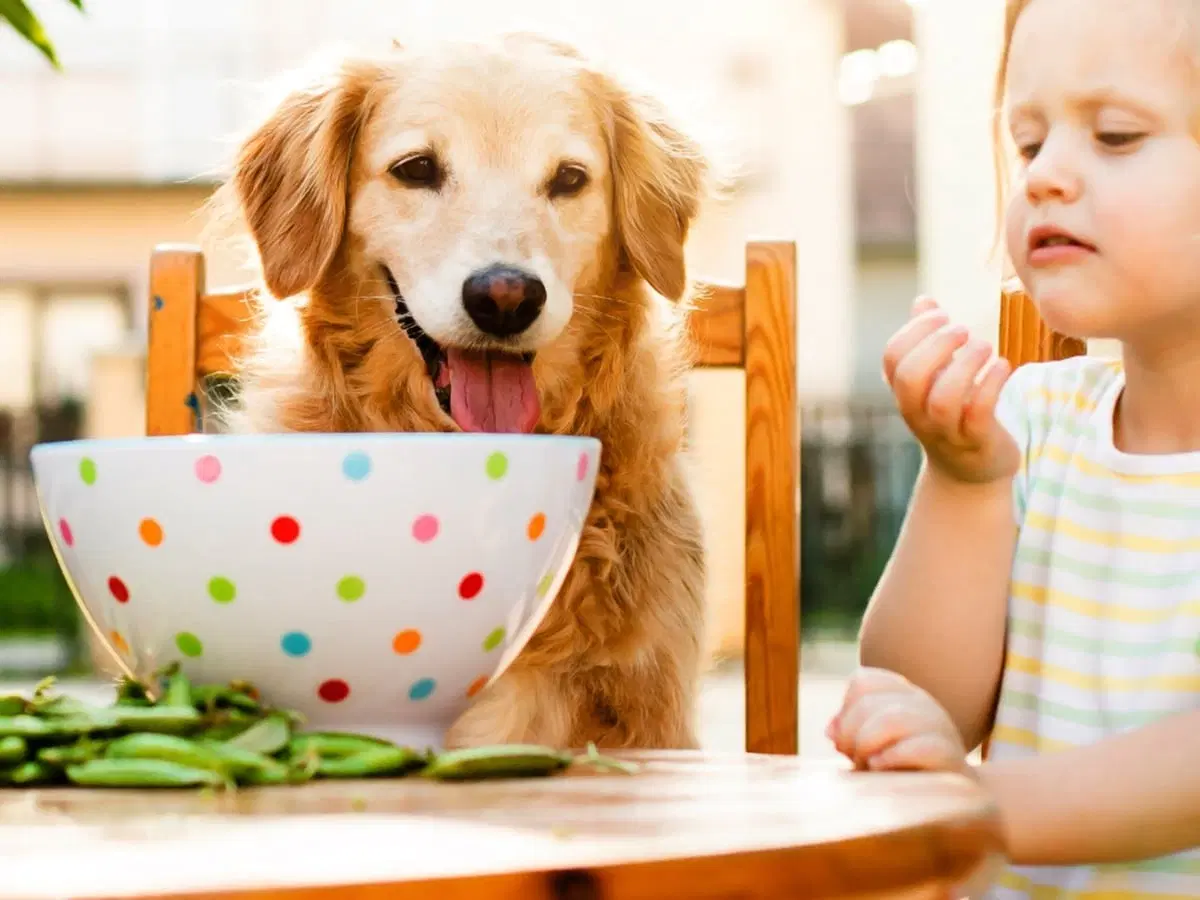Peas – those cheerful little green spheres – are surprisingly common in our lives. But are they a suitable snack for our canine companions? Let's explore the benefits, potential risks, and how to safely prepare peas for your furry friend. Can dogs eat peas? Continue reading below to learn more.
Canine Nutrition: The Basics
Dogs are omnivores, meaning their diet requires a balance of protein, carbohydrates, fats, vitamins, and minerals. High-quality dog food is formulated to meet these needs. However, offering whole foods like certain vegetables can provide a healthy and satisfying supplement to their regular diet.
The Benefits of Peas for Dogs
Packed with Nutrients: Peas offer vitamins A, C, and K, plus minerals like potassium, iron, and magnesium, all vital for a dog's overall health.
Fiber-Rich: Peas promote healthy digestion, preventing constipation, and helping dogs feel full, which is beneficial for weight management.
Source of Protein: While not a primary protein source, peas add a little boost, supporting muscle health and tissue repair.
Are There Risks to Feeding Dogs Peas?
Moderation is Key: Too many peas can cause stomach upset like gas or diarrhea. Introduce them gradually, in small amounts.
Skip the Can: Canned peas are loaded with sodium, which is harmful to dogs. Opt for fresh or frozen peas.
Choking Hazard: Pea pods can be a risk, especially for smaller dogs. Always remove the pods before serving.
Dogs with Kidney Issues: Consult your vet if your dog has kidney problems, as peas contain purines, which might require dietary restrictions in such cases.
How to Prepare Peas for Your Dog
The safest and most nutritious ways to serve peas to your dog are:
Steamed or Boiled: Cook until tender for easy digestion. No added oils, salt, or seasoning!
Frozen: A cool and crunchy treat, perfect on a hot day.
Mashed: Blend into a healthy addition to their regular food.
Safe Vegetables for Dogs
Looking to expand your dog's veggie horizons? Here are a few other dog-friendly options:
Carrots: Rich in vitamin A, great for eyesight and a satisfying chew.
Broccoli: Offers antioxidants and fiber, but only in small amounts.
Green Beans: Low-calorie, packed with vitamins and minerals.
Vegetables to Avoid: What NOT to Feed Your Dog
While many vegetables can be a safe and healthy treat for your dog, it's crucial to be aware of a few common ones that can be harmful:
Onions, Garlic, and Chives: These belong to the Allium family and contain compounds toxic to dogs, causing anemia and potential organ damage.
Avocados: Avocados contain persin, which can cause vomiting and diarrhea in dogs.
Grapes and Raisins: Even small amounts can lead to kidney failure in dogs. The exact cause of toxicity is still being researched.
Wild Mushrooms: While store-bought varieties are usually safe, wild mushrooms can be highly poisonous. It's best to keep your dog away from any and all wild mushrooms you come across to prevent accidental ingestion.
Expert Insights from DVM Antje Beth-Joslin
"Fresh or frozen peas can be a healthy addition to your dog's diet in moderation. Always monitor your dog when introducing new foods, and consult your vet if you have concerns."
Expert Insights From Spot
While it can be fun to share our favorite foods with our pets, pet parents should keep in mind that sometimes, eating human food can upset a pet's stomach. Spot Pet Insurance's internal data shows that on average, claims for dietary indiscretions (pets eating too much of what they shouldn't) cost $572. This high-cost highlights why pet parents should keep an eye on what their pets eat and do their research before sharing their favorite snacks with their dogs. Being mindful of what treats we share with our pets can help keep them healthy while helping pet parents avoid unnecessary vet bills.
Key Takeaways
Peas offer a nutritional boost to your dog's diet, providing vitamins, fiber, and a satisfying snack. Remember, moderation is important, and always choose fresh or frozen options. If you're exploring other healthy dog snacks, remember to consult with your veterinarian for personalized guidance.
How Spot Pet Insurance Can Help
Spot Pet Insurance offers accident-only and accident and illness plans, which can help provide pet parents with additional financial support and peace of mind when it comes to the health of their pet. While pet parents do their best to only give their pets snacks that are good for them, sometimes pets get into cabinets, trashcans, or abandoned plates when left alone. If your pet ingests food toxic to them, Spot plans provides benefits such as:
- Coverage for Ingested Toxins or Objects: Spot plans can cover the treatment for an ingested toxin or object, giving pet parents peace of mind that their pet can receive the treatment they need to get better. Pet parents can receive up to 90% cash back on eligible bills, helping to relieve at least the financial stress that can come from this kind of situation.
- 24/7 VetAccessTM Helpline: With a Spot plan each pet parent receives access to to a 24/7 telehealth helpline through their member center. This feature connects pet parents to veterinary experts who can address questions or concerns that come up regarding a pet's health or behavior.
- Poison Control Hotline: Each policy holder also has access to the member center where they will find the contact information for the Poison Control Hotline. If you suspect that your pet has eaten something toxic to them, you can contact the poison control hotline or your veterinarian for next steps.

Creative manager by day, pet enthusiast all the time! After 19 years with my dog (hopefully he wins the award for oldest pet in the world), I enjoy spending my days brainstorming tail-wagging content, and sniffing out the latest trends in the pet world.
*Jan 2019 to Aug 2024 Spot Pet Insurance Services, LLC claims data.
Meyers, Harriet. "Can Dogs Eat Peas?" American Kennel Club, 29 May 2024, https://www.akc.org/expert-advice/nutrition/can-dogs-eat-peas/.
Amidor, Toby. "Can Dogs Eat Peas?" DailyPaws, 23 Jun. 2022, https://www.dailypaws.com/dogs-puppies/dog-nutrition/what-can-dogs-eat/can-dogs-eat-peas.
Saylor, April. "Can Dogs Eat Peas?" PetMD, 09 May 2023, https://www.petmd.com/dog/nutrition/can-dogs-eat-peas.
The information presented in this article is for educational and informational purposes only and does not constitute or substitute for the advice of your veterinarian.












